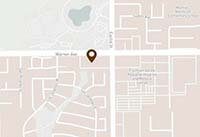To Buy Prevacid Online Visit Our Pharmacy ↓
 Side Effects of Prevacid: What to Watch for
Side Effects of Prevacid: What to Watch for
Digestive Discomfort: Common Gut-related Side Effects
Experiencing digestive discomfort is a prevalent side effect of taking Prevacid. Users often report symptoms like nausea, diarrhea, and constipation, which can disrupt daily activities. These gut-related issues occur because Prevacid alters stomach acid levels, affecting digestion. When acid production is suppressed, food takes longer to break down, potentially leading to gastrointestinal symptoms. It's crucial to monitor these side effects, as persistent discomfort may require medical attention to adjust the dosage or switch medications.
For those on Prevacid, understanding and managing these digestive challenges is essential. Recognizing the relationship between the medication and gut health can help in maintaining overall well-being while minimizing discomfort.
| Common Gut-related Side Effects |
|---|
| Nausea |
| Diarrhea |
| Constipation |
Allergic Reactions: Skin Rashes and Breathing Issues

When taking Prevacid, some patients may experience various allergic reactions. These reactions can manifest as skin rashes, often appearing as red, itchy patches that can be uncomfortable and persistent. Additionally, some individuals might face more severe reactions, such as breathing issues, which can range from mild difficulties to significant respiratory distress. It's crucial to recognize these symptoms early, as they can escalate quickly. Immediate medical attention is recommended if breathing problems occur, to prevent further complications. Understanding the potential for these side effects can help patients and healthcare providers make informed decisions about the use of Prevacid, ensuring that any adverse reactions are promptly addressed and managed effectively.
Long-term Use Concerns: Bone Health and Fractures
Prevacid, when used over long periods, can lead to serious bone health concerns, including an increased risk of fractures. This medication, while effective in managing acid reflux, reduces stomach acid, which is essential for calcium absorption. Consequently, your bones may become more porous and fragile over time. Studies suggest that prolonged use of Prevacid could weaken bone density, particularly in the hip, wrist, and spine, making individuals more susceptible to breaks and fractures. It's crucial to monitor bone health if you're on long-term Prevacid therapy, and consider speaking with your healthcare provider about potential strategies to mitigate these risks.
Nutrient Deficiencies: Vitamin B12 and Magnesium Levels

Taking Prevacid over prolonged periods can lead to significant nutrient deficiencies, particularly affecting vitamin B12 and magnesium levels. This occurs because the medication reduces stomach acid production, which is essential for the absorption of these nutrients. Low vitamin B12 levels can result in fatigue, weakness, and even neurological issues like memory impairment. On the other hand, magnesium deficiency may manifest as muscle cramps, irregular heartbeats, and, in severe cases, seizures.
It is crucial for individuals on long-term Prevacid therapy to monitor their nutrient levels regularly. Healthcare providers often recommend dietary supplements or periodic blood tests to mitigate these risks. Foods rich in B12, such as dairy products, fish, and fortified cereals, along with magnesium-dense options like nuts, seeds, and leafy greens, can be beneficial in maintaining sufficient levels.
Mental Health Impact: Risk of Anxiety and Depression
Research has shown that Prevacid may not only impact physical health but also mental well-being. Some users have reported experiencing increased levels of anxiety and depression during long-term use of this medication. The mechanisms behind these side effects are not entirely understood, but they may be linked to alterations in brain chemistry and gut microbiome changes. Monitoring your mental health while taking Prevacid is crucial, and discussing any mood changes with your healthcare provider is highly recommended.
| Potential Mental Health Impact | Explanation |
|---|---|
| Anxiety | Prevacid may cause alterations in brain chemistry leading to heightened anxiety levels. |
| Depression | Long-term usage can affect mood, possibly due to changes in the gut microbiome or brain chemistry. |
Drug Interactions: Medications to Avoid with Prevacid
When taking Prevacid, it's crucial to be aware of potential drug interactions. For instance, combining it with certain blood thinners, such as warfarin, can heighten bleeding risks, requiring close monitoring. Additionally, medications like methotrexate, used for cancer and autoimmune diseases, may have altered efficacy and increased toxicity. Antifungal drugs, such as ketoconazole, may not work as effectively when taken with Prevacid, as the drug can inhibit their absorption.
Other significant interactions include HIV medications like atazanavir, which may become less effective, posing serious health risks. Always consult your healthcare provider about your current medications before starting Prevacid to avoid harmful interactions and ensure safe usage.





